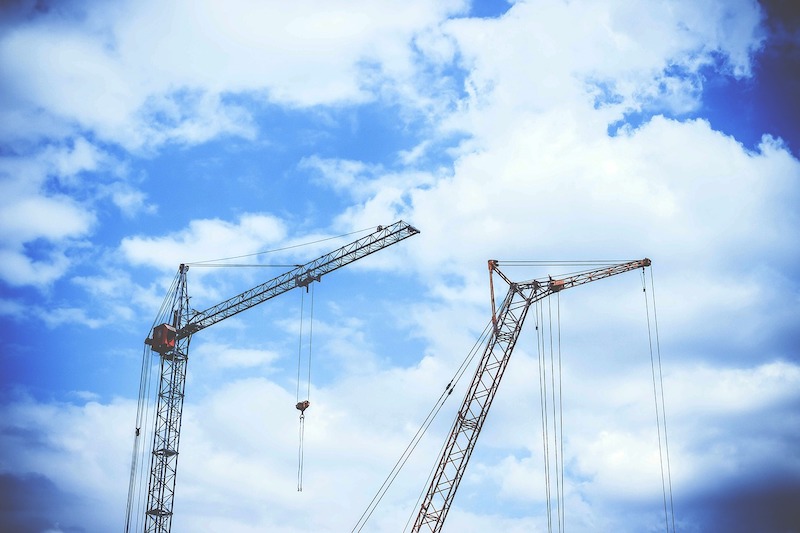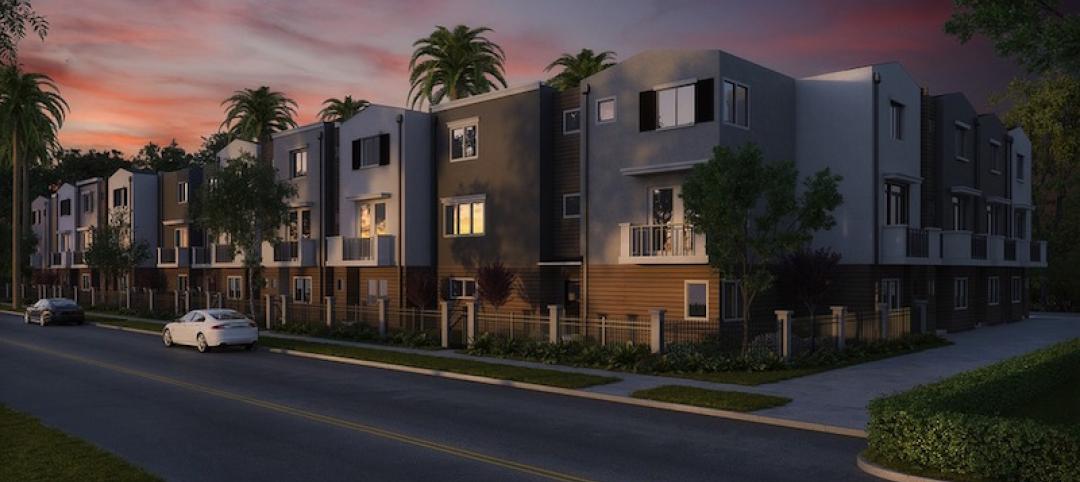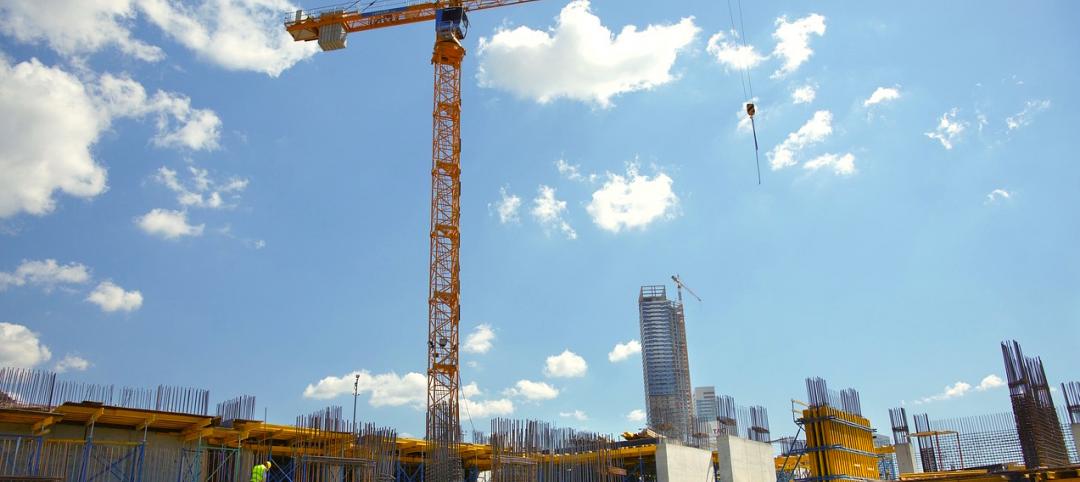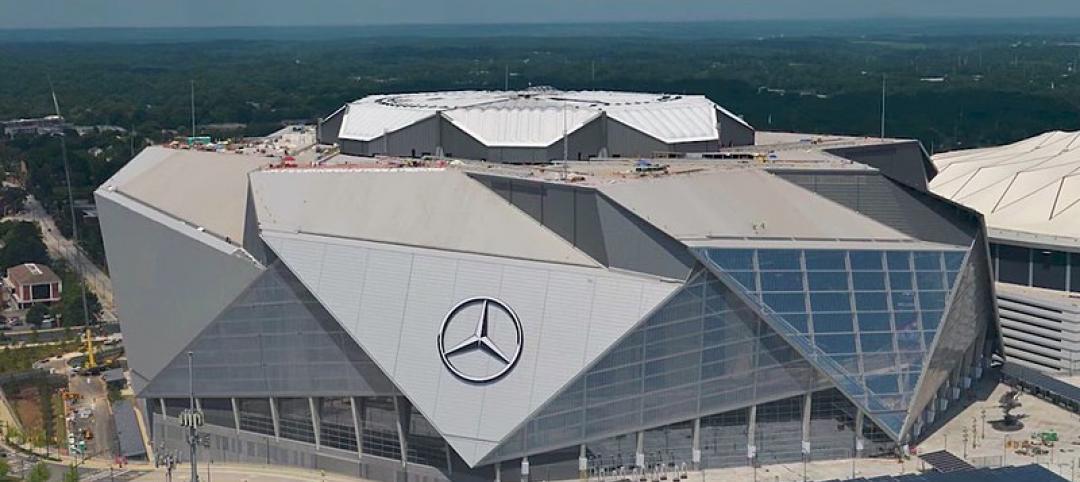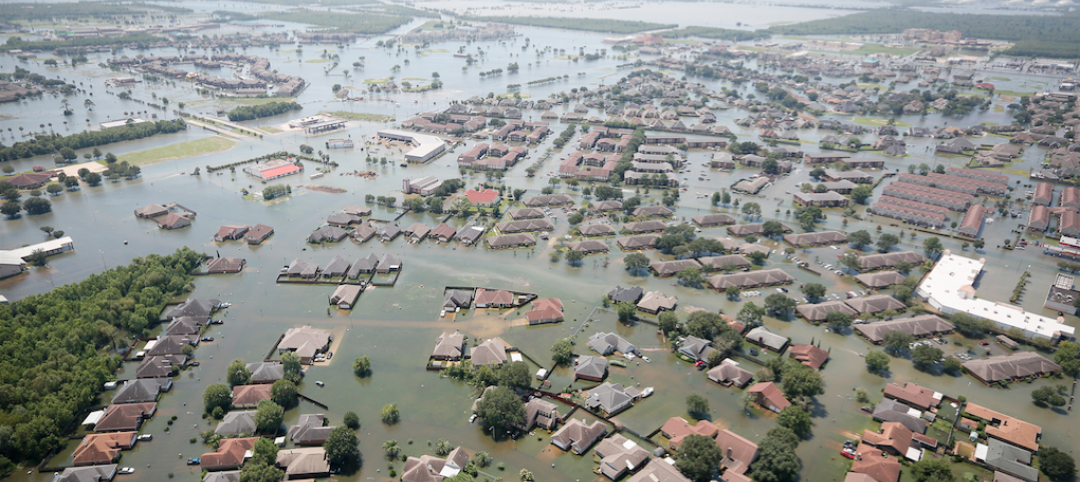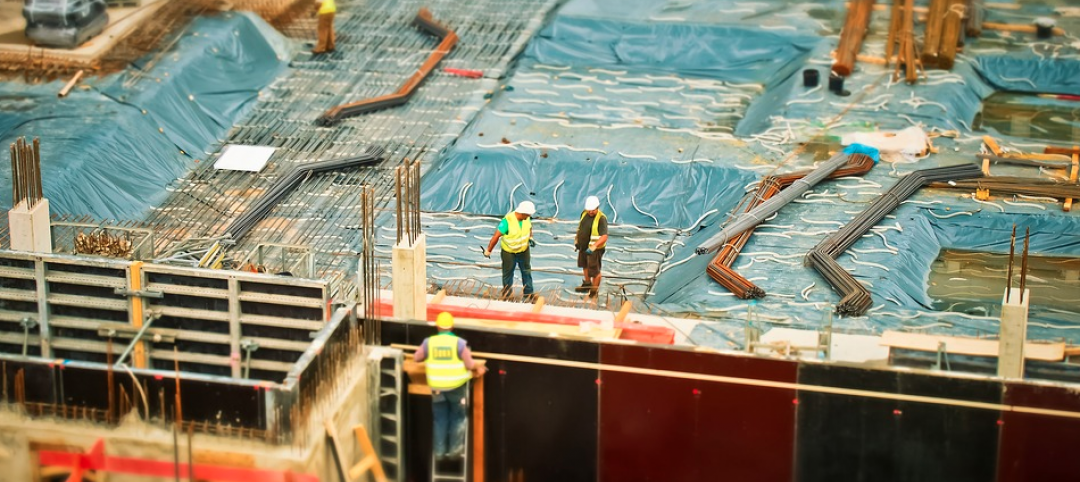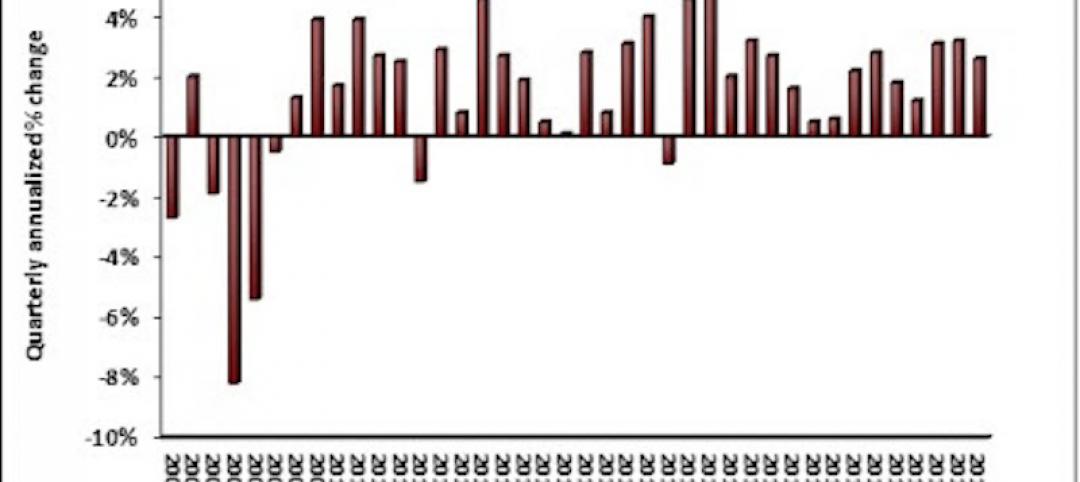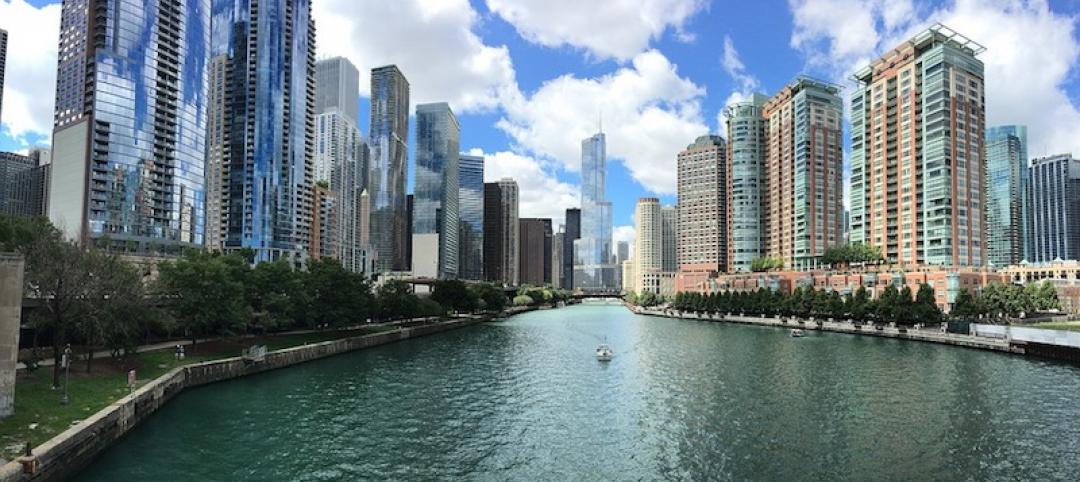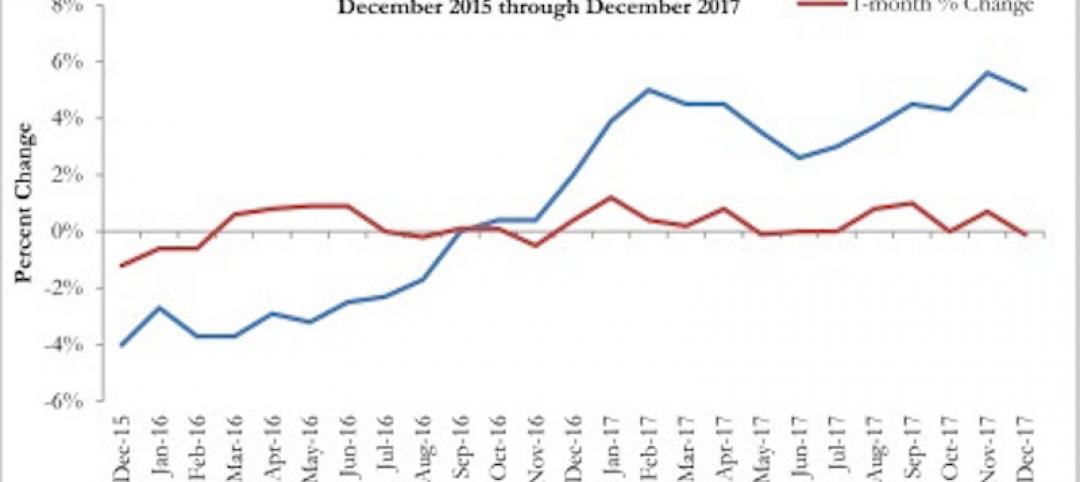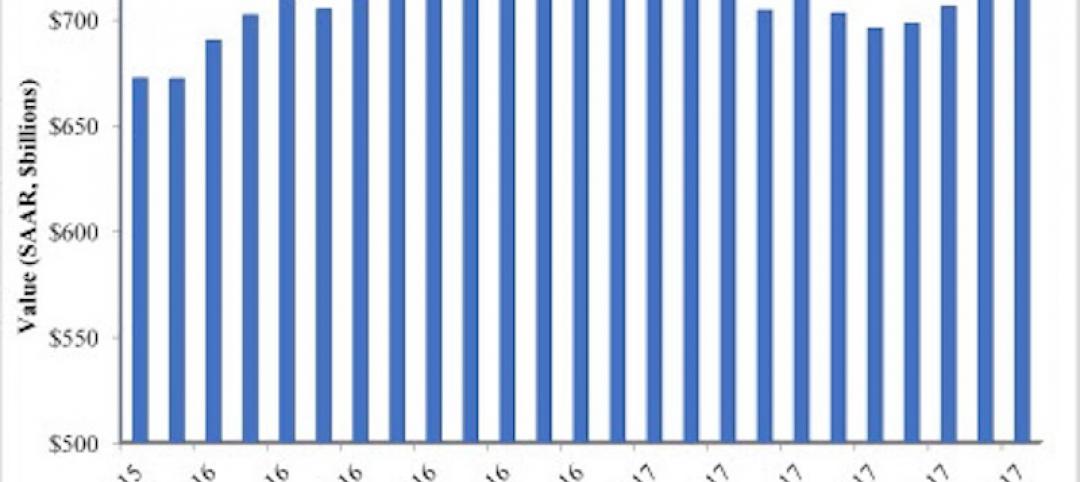Construction spending rallied in January as private nonresidential construction increased for the first time in seven months, according to an analysis of new federal construction spending data by the Associated General Contractors of America. Association officials said that nonresidential construction spending remains below pre-pandemic levels and that rising materials prices and proposed labor law changes threaten the sector’s recovery.
“Despite a modest upturn in January, spending on private nonresidential construction remained at the second-lowest level in more than three years and was 10% below the January 2020 spending rate,” said Ken Simonson, the association’s chief economist. “All 11 of the private nonresidential categories in the government report were down, compared to a year earlier.”
Construction spending in January totaled $1.52 trillion at a seasonally adjusted annual rate, an increase of 1.7% from the pace in December and 5.8% higher than in January 2020. Residential construction jumped 2.5% for the month and 21% year-over-year. Meanwhile, combined private and public nonresidential spending climbed 0.9% from December but remained 5.0% below the year-ago level.
Private nonresidential construction spending rose 0.4% from December to January, although declines continued for the three largest components. The largest private nonresidential segment, power construction, fell 10.0% year-over-year and 0.8% from December to January. Among the other large private nonresidential project types, commercial construction—comprising retail, warehouse and farm structures—slumped 8.3% year-over-year and 1.8% for the month. Office construction decreased 4.4% year-over-year and 0.2% in January. Manufacturing construction tumbled 14.7% from a year earlier despite a 4.9% pickup in January.
Public construction spending increased 2.9% year-over-year and 1.7% for the month. Results were mixed among the largest segments. Highway and street construction rose 6.5% from a year earlier and 5.8% for the month, possibly reflecting unseasonably mild weather conditions in January 2021 compared to December and January 2020. Educational construction increased 0.9% year-over-year but dipped 0.1% in January. Spending on transportation facilities declined 0.6% for the year and 1.0% in January.
Private residential construction spending increased for the eighth-straight month, jumping 21% year-over-year percent and 2.5% in January. Single-family homebuilding leaped 24.2% compared to January 2020 and 3.0% for the month. Multifamily construction spending climbed 16.9% for the year and 0.7% for the month.
Association officials said that many construction firms report they are being squeezed by rising materials prices, particularly for lumber and steel, yet are having a hard time increasing what they charge to complete projects. They urged the Biden administration to explore ways to boost domestic supply and eliminate trade barriers for those key materials. They also cautioned that the proposed PRO Act and its significant changes to current labor laws could undermine labor harmony at a time when the industry is struggling to rebound.
“Contractors are getting caught between rising materials prices and stagnant bid levels,” said Stephen E. Sandherr, the association’s chief executive officer. “Add to that the possible threat of a new era of labor unrest, and many contractors are worried that the recovery will end before it really starts.”
Related Stories
Multifamily Housing | Feb 15, 2018
United States ranks fourth for renter growth
Renters are on the rise in 21 of the 30 countries examined in RentCafé’s recent study.
Market Data | Feb 1, 2018
Nonresidential construction spending expanded 0.8% in December, brighter days ahead
“The tax cut will further bolster liquidity and confidence, which will ultimately translate into more construction starts and spending,” said ABC Chief Economist Anirban Basu.
Green | Jan 31, 2018
U.S. Green Building Council releases annual top 10 states for LEED green building per capita
Massachusetts tops the list for the second year; New York, Hawaii and Illinois showcase leadership in geographically diverse locations.
Industry Research | Jan 30, 2018
AIA’s Kermit Baker: Five signs of an impending upturn in construction spending
Tax reform implications and rebuilding from natural disasters are among the reasons AIA’s Chief Economist is optimistic for 2018 and 2019.
Market Data | Jan 30, 2018
AIA Consensus Forecast: 4.0% growth for nonresidential construction spending in 2018
The commercial office and retail sectors will lead the way in 2018, with a strong bounce back for education and healthcare.
Market Data | Jan 29, 2018
Year-end data show economy expanded in 2017; Fixed investment surged in fourth quarter
The economy expanded at an annual rate of 2.6% during the fourth quarter of 2017.
Market Data | Jan 25, 2018
Renters are the majority in 42 U.S. cities
Over the past 10 years, the number of renters has increased by 23 million.
Market Data | Jan 24, 2018
HomeUnion names the most and least affordable rental housing markets
Chicago tops the list as the most affordable U.S. metro, while Oakland, Calif., is the most expensive rental market.
Market Data | Jan 12, 2018
Construction input prices inch down in December, Up YOY despite low inflation
Energy prices have been more volatile lately.
Market Data | Jan 4, 2018
Nonresidential construction spending ticks higher in November, down year-over-year
Despite the month-over-month expansion, nonresidential spending fell 1.3 percent from November 2016.


